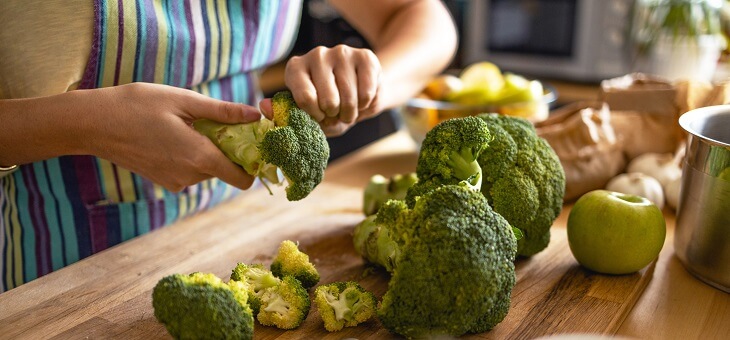Many people are doing their best to improve their health by eating better. And there’s no shortage of suggestions out there. Ads in magazines, on television and via social media seem to bombard us with ways to eat more healthily.
Cut out your carbohydrates, go glutenfree, stop consuming milk products, go easy on the red meat, increase your fibre intake, become a pescatarian, become a vegetarian, become a vegan!
Some of these suggestions are little more than marketing campaigns; others are full of good intentions, with genuine aims of helping you become healthier. Most of them contain at least a kernel of good advice, which makes it all the more difficult to know which advice to take.
The best advice is probably to listen to the experts – not the celebrities. Of course, that will entail knowing who are the experts. Looking for those who have tertiary qualifications in the relevant subject is a good place to start.
Read: How to boost your gut health and immune system this winter
Two such people are clinical dietician Elaine McGowan and consultant gastroenterologist Professor Barbara Ryan. Between them, they have 50 years’ experience working in gut health. The pair run a gut health clinic in Dublin.
‘Gut health’ is very much a buzz phrase at the moment and it’s tempting to think it’s just another fad. Happily, this ‘fad’ is very much grounded in science. In recent decades, much research on the gut has been done, and we now know that a healthy gut plays a big role in keeping the rest of the body functioning well.
That even includes your mental health. Your gut is responsible for 70 per cent of your body’s production of serotonin – the chemical that plays a key role in ensuring you sleep well and in controlling your mood.
Ms McGowan and Prof. Ryan see many cases of people who have stereotypical poor gut health habits – not eating any fibre, eating too fast, drinking carbonated drinks and exercising vigorously after eating.
Read: Scientists find coffee is good for your health
While these comprise about 80 per cent of their clients, the other 20 per cent are somewhat surprising. One in every five of their patients are people who are following diets that they believe to be very healthy. However, in their efforts to do the right thing by their body, they are inadvertently doing the opposite.
According to Ms McGowan and Prof. Ryan, these patients are making dietary changes such restricting wheat and lactose, drastically increasing fibre intake or following vegan diets. These can create potential problems, particularly if changes are made too quickly.
One patient Prof. Ryan saw had changed her diet to include huge amounts of fructans and fructose; spinach and kale smoothies and prune and date bowls – the sort of diet seen in many Instagram photos.
None of those foods are unhealthy, but the dramatic and sudden increase in their intake resulted in severe bloating. The patient had previously had no digestive trouble at all.
The key takeaway is to make changes gradually.
Read: Podcast: Healthy ageing through diet and exercise
Another recent fad has been to adopt a gluten-free diet. This is a very good thing to do if you have been diagnosed as coeliac. The reality is, though, that only about 1 per cent of people in western societies are coeliac, and yet in the UK, as many as 10 per cent of the population has switched to a gluten-free diet.
For the majority of those, their efforts are unlikely to provide any real health benefits and, in some cases, may be doing more harm than good. Many gluten-free foods, for example, have more fat, salt and sugar than equivalent foods that do include gluten.
Ms McGowan and Prof. Ryan advocate adjustment rather than elimination. “People go down a strict road of ‘food rules’ where certain foods become the enemy, but there are no such rules,” says Prof. Ryan. “There isn’t one food that’s ‘bad’.”
Unless you have a specific medical condition that requires you to avoid certain foods, moderation is the key. Eat more of the obviously nutritional foods, such as fruit, vegetables and whole grains, and only occasionally indulge in treats such as chocolate or fried foods.
If you enjoy our content, don’t keep it to yourself. Share our free eNews with your friends and encourage them to sign up.

